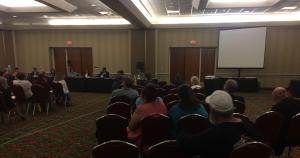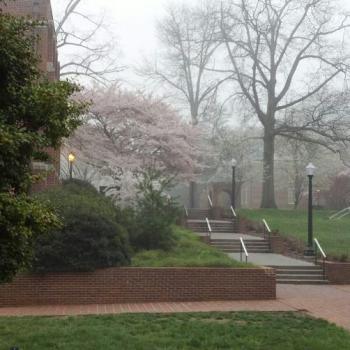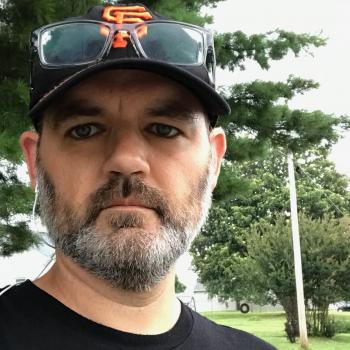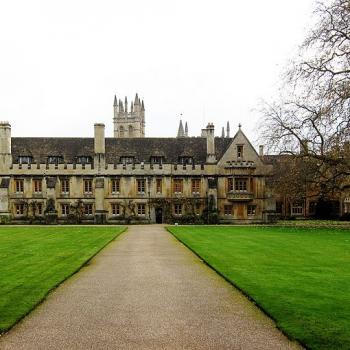This week, there are some decisions being made in our region, primarily at the Grand Traverse Resort and Spa. Questions affecting our families, society, and state are being decided both now, and possibly in the near future. The major issue may not be the real issue. Are we living in a time when deconstructionism is the modus operandi?
Are we in Michigan speaking two different languages that do not intersect (Christians and legal commissions)?
i. Locations & Themes
Some of today’s discussion revolves around where the next meetings will take place for the Michigan Civil Rights Commission. Those will be in Grand Rapids (in order to hold a meeting in the West) and Detroit (which has the largest educational system).
Co-Chair Laura Kopack concludes that segment of the discussion, stating that there are some other possible locations, including Jackson (TBD).
According to Director Agustin Arbulu, at this year’s September meeting themes and topics regarding education will be addressed (i.e. special education, rural education, homeschooling, etc.).
Commissioner Ricardo Resio reports that there are apprenticeship, educational programs now in place in Jackson (perhaps like a pilot program for the state).
ii. Ongoing Business: updates on rules changes & LGBTQ request/response to Attorney General Scheutte from legislators
New rules are adopted and set in place as to the order of the meetings for the commission.
Today’s business also includes questions about whether or not there is to be an expansion of civil rights in Michigan, as Commissioner Resio states. He sets a timeline in place, with the assistance of the others.
Last summer, the commission requested an opinion regarding the expansion of language in the Elliot-Larsen Civil Rights Act, from Bill Schuette, Attorney General. This is a formal opinion paper from the chief lawyer in our state.
In September, a couple of our Michigan statesmen also requested an opinion.
In May, the commission stated they would wait for Attorney General Schuette’s opinion before moving forward. Commissioner Resio adds that he was not able to attend that meeting.
Last Friday, Attorney General Schuette issued Opinion AG7305, readily available on the internet.
Today the Commission issues Interpretive Statement 2018-1. Additionaly, Director Arbulu states that Attorney General Scheutte’s AG7305 is “not binding.”
iii. Dialogue among the commissioners seems to vary
Commissioner Ron Robinson represents Attorney General Scheutte. He states that in 35 years, the opinion of his office and the commission, have never been at variance.
I would like to ask a question at this point in the narrative. I speak very tentatively from a Christian perspective.
Isn’t legal precedent to the judicial system what tradition is to denominations and fellowships?
As Christians, why would we discard 2,000 years of tradition, from the Acts of the Apostles forward, in favor of current deconstructionism in the church? We’re just as guilty.
I dare say that church history is not canon, as is the book of Acts, however we cherish our faithful witnesses throughout time. The beloved Body of Christ on earth is at odds with each other over these very issues that are dividing the legal system.
iv. What are some of the next steps?
Commissioner Robinson adds to his statements above (not my tentative opinion) that the commission needs the Attorney General’s permission to adjudicate.
Although there is too much to their discussion at this point to communicate in a blog post like this, Commissioner Ira Combs, D.D. has some pointed questions. He asks Commissioner Robinson a clarifying question, to make sure that he hears right, about the Attorney General granting permission for the commission to adjudicate (going to the courts). Commissioner Robinson confirms.
Some commissioners ask why they have requested the Attorney General’s opinion, waited for it, and are now refusing to heed the call. Commissioner Combs seems to restate the question, asking if the commission is making legislation versus overstepping their boundaries. He asks, “Are we adding words?” to the Elliot-Larsen Civil Rights Act. He reiterates (and I think that may be important) “Are we adding words?” If so, if Interpretive Statement 2018-1 is at odds with AG7305, then it will go to the courts. If it does so, he would welcome it.
As to the role of civil rights, there seems to be concern as to the effect these decisions will have on the social sectors. Commissioner Resio notes that in Utah, the language was expanded, however that state set in place legal provisions to protect religious organizations.
Although the legalese today is a little difficult for me to interpret, Commissioner Resio, and some other commissioners, seem to be opposed to the communique that they issue are issuing.
 JVI, Michigan Civil Rights Commission Meeting
JVI, Michigan Civil Rights Commission Meeting
Grand Traverse Resort and Spa |07.23.18
In fact, Commissioner Resio adds that he won’t be able to attend the meeting tomorrow, so he asks Co-Chair Kopak if the commission will refrain from making a decision without him. They concede to his request.
v. Public Comment
People voluntarily sign in, are offered the opportunity to speak by writing their name on a card, and are called upon in that order.
The vast majority of those who speak cite Jude0-Christian mores, but not all. There may be some merit to the repeatedly heard point that by elevating the rights of special interest, the commission may be starting to infringe on the civil rights of Christians, and even the values of some non-believers.
Almost all of the commissioners offer closing remarks before the meeting is adjourned (including, but not limited to Director Arbulu, Commissioner Alma Smith, both Co-Chairs, Commissioner Stacie Clayton, and Commissioner Robinson). They especially thank all who are in attendance (my estimate is perhaps 120 or more, including press). Their gratitude seems quite sincere, and due honor is given to the concerned citizens who voice their opinions.
Commissioner Combs notes how well pleased he is that we are dialoguing today. I would think he means to de-escalate an “us versus them” mentality.
vi. Commissioner Resio offers a sermon
Commissioner Resio yields to Commissioner Clayton first, then defers to Commissioner Robinson, who asks him to conclude. He addresses the Christians, who seem to be the vast majority, at least among those who comment.
Commissioner Resio recognizes the fact that some state they have traveled hours to speak at this meeting. So has he. He notes that some have done so at their own expense. He says, “I’m working for free!”
Then he takes a turn, pointing out that Biblical standards are being cited by many. So he offers a sermon suggestion as well.
He challenges us to start a sermon with a couple questions:
“When were you baptized?” Then see how many different ages and years people cite.
Then ask the question, “How many sins have you committed since then?” Some may say many, some may say daily.
Then Commissioner Resio instantly reminds us of the woman caught in the act of Adultery
What does Jesus Christ do first (and may I add our Lord, in an act of empathetic compassion)? Commissioner Resio says, “The first thing Jesus does is to disarm the elders!”
Some of them may have dropped their rocks. Others may have clenched them. We all have rocks (see John 8.7-9 in any version you like).
After a few more comments and questions among the commissioners, the meeting is adjourned.
After reviewing the Koine Greek tonight, I believe Commissioner Resio may be right in his interpretation, because the term presbyteros is used
This can mean oldest, but in this context it quite possibly carries another meaning, that of rank or office (like our Christian term presbytery).
A shortlist of versions that translate the term as elders, not older people, are the New Revised Standard Version, New American Bible (Revised Edition), and Young’s Literal Translation (see John 8.9).
vii. Are the elders of Christ’s day involved in a sort of deconstructionism of their own, adding endless traditions to the Hebrew Bible?
Now I’ve heard it said that no one has ever read through all of the Talmud in one lifetime. And who can read all of the commentaries in Christian circles?
The question Jesus may be addressing may not have been an immoral act. It may be an immoral agenda of entrapment seen in the Gospels. This agenda could be (not sure) similar to agendas forcing prophets to go into hiding in the Hebrew Bible.
Are all contemporary agendas wrong? Is deconstructionism wrong? I may be asking these questions in a negative way (a mechanism of apophatic Theology).
In a positive light, I could ask the question, what are we attempting to reconstruct after our agenda of deconstructionism (cataphatic)?
These are perhaps questions to consider, both for the people of God, and for Michigan.
I’m praying for the reign of Jesus Christ our Lord, Son of God
May the Spirit make us witnesses of an eschatological moment in our state, protecting our sanctuaries, gatherings, and all who hold to values that may seem antiquated.
Countless people are praying that the decisions made this week, and/or in possible adjudications ahead, will be of God.













